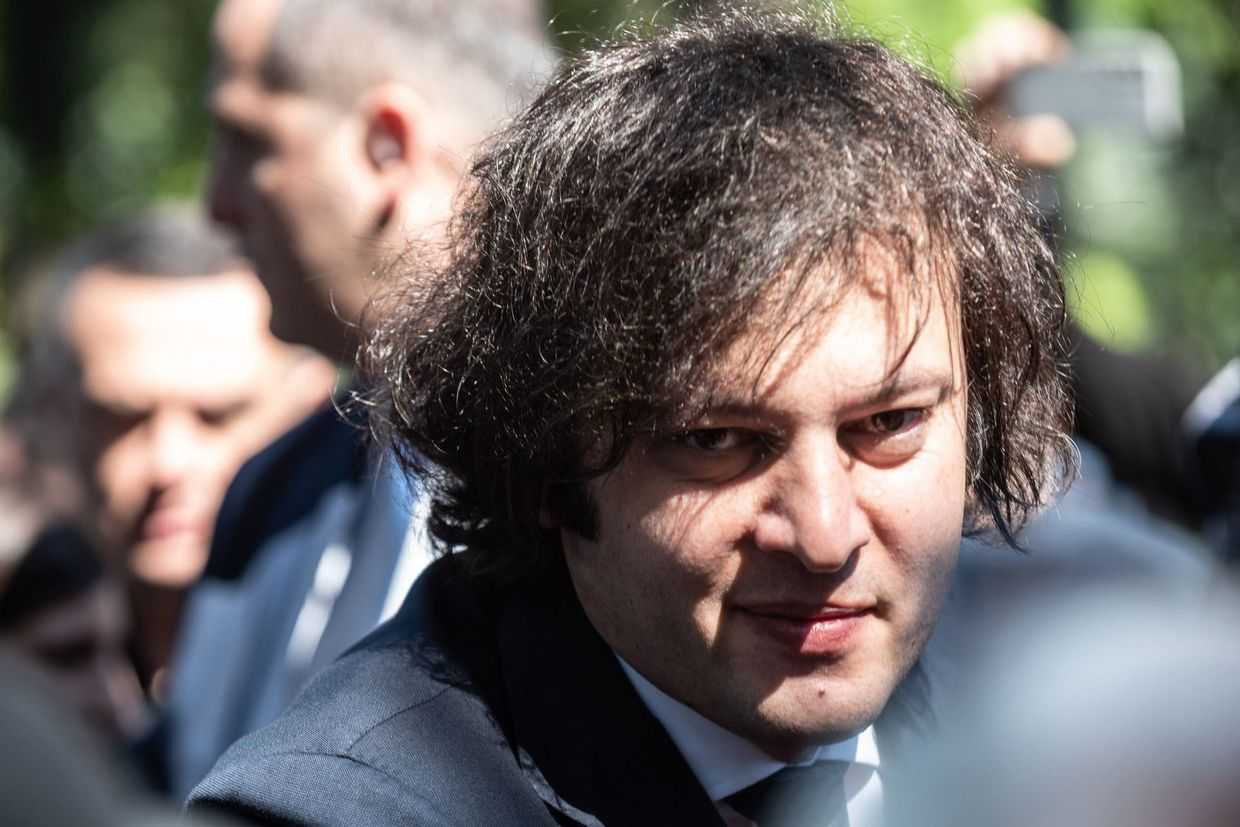
It has been over a decade since the August War and three decades since Georgia’s territorial conflicts first broke out, and still, the discussion remains the same. If the deadlock is ever to be broken, Georgia’s government and society at large need to reexamine how we look at and talk about these conflicts.
Who started the war in South Ossetia in August 2008?
More than 10 years later, discussions about the August War in South Ossetia are still reduced to this question.
Who fired the shot that conclusively started the August War becomes less relevant when considering that people continue to live in a war-like situation to this day.
The European Court of Human Rights ruled against Georgia on this matter, a fact amply exploited by Russia to portray itself as a peacekeeper between the Georgians and South Ossetians — not what it actually was, one of the parties to the conflict.
Georgia’s narrative is diametrically opposed, framing the events of August 2008 as the Russo-Georgian War and totally ignoring the Ossetians.
In debates and speeches on Russian media, which often parrot the narratives pushed by the Kremlin, there is a clear tendency to blame Georgia for ‘provoking’ Russia with its quest to join NATO. This entitlement is part of the neo-colonial politics of Russia in the post-Soviet region.
However, Georgia’s struggle against this neocolonial attitude does not necessarily assume a freedom from external forces — the suggested solutions by the government and civil society often explicitly or implicitly imply involving NATO and the European Union. These are by no means non-oppressive solutions for South Ossetians and Abkhazians.
Russian entitlement over Georgia is translated into Georgian entitlement over South Ossetia and Abkhazia who in turn refuse to recognise the casualties experienced by people on the other side of the barbed wire.
The asymmetry of power between Georgia and Russia, as well as the withdrawal of Georgian forces from Tskhinvali and displacement of tens of thousands of people from South Ossetia, have made the obvious even clearer — Georgia cannot seek aggressive solutions in Abkhazia and South Ossetia.
Militaristic sentiments in Georgia are in decline and some diplomatic and economic relations with Russia have been restored. While excluded from the diplomatic negotiations and information wars between Georgia and Russia, some openness to dialogue with Georgia from the South Ossetian and Abkhazian leadership have slipped through.
And yet, we are not close to even a discussion about peace. Foremost of all, Georgia has been successful in exposing Russia as an interested party rather than a peacekeeper in the region. However, the resulting picture of Georgia as the victim does not lead to a peaceful vision for resolving the conflict.
No vision for peace
After three wars and several confrontations, peace seems to be so unpopular in Georgia that the government does not even dare to bring up the possibility of a dialogue with the authorities in Abkhazia and South Ossetia — especially before the elections.
Meanwhile, the rhetoric of civil society is ahistorical and disinterested to say the least. Be it the capture of the Georgian doctor Vaja Gaprindashvili or the murder of Archil Tatunashvili, Georgian solutions are short-term, exclusively addressed at the Russian military, and unwilling to even ask what the other side of the conflict thinks of Georgia’s vision of the conflict.
The territorial integrity of the Georgian state seems to be the only concern, but how the peoples who have been fed with hate should coexist with each other remains unanswered.
At a state level, the solutions are almost non-existent. The ruling Georgian Dream Party has built its whole political identity in opposition to its predecessor, the United National Movement.
Former President Mikheil Saakashvili has been blamed for the war and the ineffective and aggressive solutions of the previous government condemned and used to discredit him. However, this is as far as the Georgian Dream goes.
There is no proactive plan or suggestion, or even an open discussion, on how the conflict can be resolved. Both the government and civil society resort only to seeking help and recognition from a third power, the West.
Georgia’s illusions
The promise of NATO and EU membership is associated with conflict resolution in a very paradoxical way. It is clear that Georgia’s interest in joining NATO will always make it a potential target of economic and actual violence by Russia. At the same time, NATO, and to some extent the EU, implicitly refer to the conflicts and Russia’s interests in Georgia as the main reason for turning Georgian membership down.
Even if the country joins either of these unions, it is already obvious that Russia will not give up these interests, not without violence, at least. Once again, peace is not the scenario either the Georgian Government or civil society are signing up for.
Georgia seems to be under the illusion that the Abkhazians and Ossetians will somehow miraculously start living with Georgians once the Russian factor is eliminated. Similarly, the interests of South Ossetia and Abkhazia to be involved with international organisations like the EU is often overestimated.
The lack of interest by the EU in the region and reluctance of Abkhazia and South Ossetia to engage with international organisations in conflict resolution or democracy building shrink the space for international cooperation there, especially when the solution is almost always articulated in absolutist terms: Georgia has to get its territories back.
On the other hand, the recognition of Abkhazia and South Ossetia would leave the 200,000+ displaced people with no solution and no justice either, which leaves limited space for compromise from either side.
There is also very little evidence that Abkhazia and South Ossetia would ever be willing to compromise on this matter.
Put this way, it seems like the conflicts are bound to be frozen indefinitely — the territorial integrity of the country will not be restored by force as Russia will not give up its interest in the region, and the NATO membership is either not happening or will provide no guarantee for the resolution of the conflict.
But, despite how desperate the situation seems, there are still some moves the Georgian Government and the international community could make.
A way forward
Georgia’s only achievement as far as the conflicts go has been to expose Russian interests in the region for what they are. However, this has not reduced Russia’s influence in Abkhazia and South Ossetia.
While completely severing relations with Russia is impossible, there could be ways to concentrate on exposing Russian power in the region at all levels and to use international support as a point of departure.
The anti-occupation movement could also concentrate more closely on the influence of Russian economic power in Georgia, gained through ownership of several strategically important industries.
Also, apart from fragmented initiatives like providing healthcare for Abkhazians and South Ossetians, the Georgian government has not been inclusive of the communities it claims as citizens.
For example, the fact that the Georgian warlords of the 1990s were never punished not only sends a threatening message to the Ossetians and Abkhazians, it erases the memory of the violence Georgians were also subjected to. A prime example is Jaba Ioseliani, a thief-in-law and head of the notorious Mkhedrioni paramilitary group, who was buried respectfully in the Didube Pantheon.
In other words, the anti-occupation movement should address the violence of the civil war and the collective trauma it inflicted not in simple nationalistic terms, but as a problem that all of Georgia, with all its ethnic communities, endured. They should demand justice for all, not simply the victims of Russian colonial power.
This is particularly important, since what little exchange there has been between Georgia and Abkhazia and South Ossetia has only been declining over the years. A new generation of displaced people as well as the younger generations in these territories do not start with the memory of peaceful coexistence and friendship and learn totally conflicting versions of history.
Altogether, these actions would shift the narrative from one of only victimhood to the recognition of our own side’s guilt as well. This obviously provides no guarantee that the Abkhazians and South Ossetians will do the same, but the testimonies exist from both sides and putting together a more humane story of the conflict is not so difficult if there is a political will.
This leads to a final unpopular suggestion — a vision of resolution beyond nationalistic interests of the state.
So far, the only actors Georgia refers to when speaking of the conflict are Russia and the West. The South Ossetians and Abkhazians are not only relegated from the dialogue as passive, almost non-existent parties, but the conflict itself is never placed in a broader geopolitical space.
While Georgia has been actively trying to position itself as a part of Europe, we cannot ignore the fact that it is first and foremost located in the South Caucasus — a region with political tensions and frozen conflicts at every recognised or unrecognised border.
The solutions for coexistence do not necessarily have to stick to the rigid demarcation of the nation-state and could envision more transnational identities and entities.
The autonomy and sovereignty of this or that country does not already mirror the formal geographical markers of the state. As stated above, the influences more powerful countries or organisations exercise in the region are already negotiated, accepted, or rejected.
For a small, low-income country like Georgia, seeking alliances outside of its borders is inevitable. This is even more true for Abkhazia and South Ossetia, especially the latter, which has so far shown a limited capacity to exist independently.
Squeezing these regions until they break has not worked and has led to tighter bonds between them and Russia. Maybe recognising the limits and vulnerabilities of all of these nations and finding common solutions could make it better.
[Read more: Opinion | Europe must engage Abkhazia on its own terms]
The opinions expressed in this article are the author’s alone, and do not necessarily reflect the views of OC Media’s editorial board.






